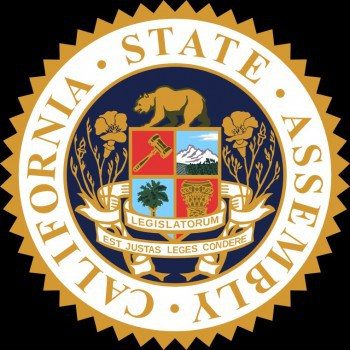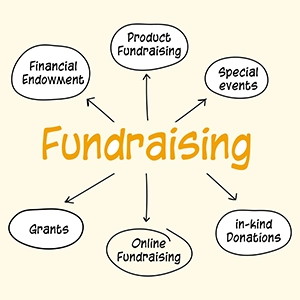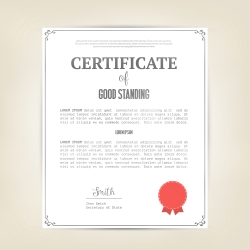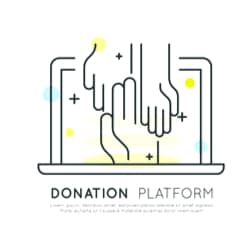On October 7, 2021, California Governor Gavin Newsom signed into law Assembly Bill 488, which amends The Supervision of Trustees and Fundraisers for Charitable Purposes Act and establishes a new statutory framework to regulate online charitable fundraising platforms. In a joint press release issued by Governor Newsom and Assemblymember Jacqui Irwin, they noted that, “[a]s currently written, California’s solicitation laws do not specifically reach these online platforms,” leaving a gap in the regulatory framework with respect to a fast-growing and highly innovative segment of charitable fundraising. The new law seeks to close this regulatory gap by establishing new registration and reporting requirements, requiring certain key donor disclosures, and enacting various requirements to safeguard charitable donations received on the internet.
The new law defines a “charitable fundraising platform” as “any person, corporation, unincorporated association or other legal entity that uses the internet to provide an internet website, service, or other platform to persons in this state, and performs, permits, or otherwise enables acts of solicitation to occur.” The broad definition of charitable fundraising platform applies to most consumer-facing websites that facilitate the receipt of online donations, with limited exceptions.[1] It also applies to websites that run multiple promotions advertising that a portion of the purchase price from the sale of goods or services will be donated to specified charities, as well as websites or platforms that voluntarily invite customers to add a donation during the check-out process, or that encourage individuals to take certain actions to trigger donations. According to one legislative analysis, examples of charitable fundraising platforms include Amazon, Benevity, Charity Navigator, CrowdRise, eBay, Facebook, GoFundMe, Google, GuideStar (Candid), Lyft, Overstock, and PayPal.
The bill also regulates platform charities, which are charitable organizations that facilitate acts of solicitation on a charitable fundraising platform.
Key New Requirements
The bill contains a number of new requirements applicable to charitable fundraising platforms and platform charities, including the following:
1. Registration and Reporting. Charitable fundraising platforms and platforms charities must annually register and submit financial reports to the California Attorney General’s office. Additional regulations addressing the content of the registration and annual report forms and the manner and timing of the filings will be issued by the Attorney General.[2]
2. Required Disclosures. The new law will require charitable fundraising platforms to clearly disclose certain information, including: (1) a statement about who will receive the donations; (2) if applicable, a statement that a recipient charity may not receive donations or grants of recommended donations, with an explanation identifying the circumstances under which a recipient charity may not receive the funds; (3) the length of time it takes to send the donation or a grant of the recommended donation to a recipient charity; (4) the fees or other amounts (if any) deducted from or added to the donation or a grant of the recommended donation; and (5) whether the donation is tax-deductible or not. The new law permits some, but not all, of these disclosures to be provided through a conspicuous hyperlink, so long as the disclosure is conspicuous when the hyperlink is selected.
3. Written Consent of Charity Beneficiaries (and a Limited Exception). The law generally requires that a charitable fundraising platform or platform charity obtain the written consent of any recipient charity before using its name in a solicitation, but provides that such written consent is not needed if all of the following circumstances are met: (1) the platform only includes certain information about the recipient charities on the platform, as set forth in the new law or future regulations (e.g., the recipient charities’ name, address, telephone number, internet website, EIN, registration number with the California AG’s office, NTEE Code, and publicly available information from the recipient charity’s tax or information returns filed with the Internal Revenue Service or the California AG’s office); (2) the platform conspicuously discloses before persons can complete a donation that the recipient charity has not provided consent or permission for the solicitation, and has not reviewed or approved the content generated by individuals engaging in peer-to-peer charitable fundraising, when applicable; (3) the platform promptly removes any recipient charity from its list or any solicitation regarding the recipient charity upon written request by the recipient charity; and (4) the platform or platform charity does not require that a recipient charity consent to any solicitations as a condition for accepting a donation or grant of a recommended donation.
4. Soliciting or Receiving Funds Only for Charities in Good Standing. A charitable fundraising platform or platform charity may only facilitate solicitations or the receipt of donations for the benefit of charitable organizations in good standing. “Good standing” means the platform charity or other recipient charity’s tax-exempt status has not been revoked by the Internal Revenue Service or the California Franchise Tax Board, or is not prohibited from soliciting or operating in California by the Attorney General.
5. Segregation of Funds; Accounting of Fees. Charitable fundraising platforms and platform charities must hold charitable funds raised in a separate account or accounts from other funds belonging to the platform or platform charity, and must promptly ensure that donations and grants of recommended donations are sent to recipient charities with an accounting of any fees imposed for processing the funds.
6. Prompt Distribution of Donations/Grants. In addition to the requirement for platforms to disclose the amount of time it takes for donations to be sent to recipient charities, the Attorney General is authorized to establish regulations regarding the maximum length of time a platform or platform charity may take to send the donated funds, taking into consideration various facts and circumstances.[3] For platforms that make donations or grants based on purchases or other activity performed on the platform, the platform must send donations or grants of recommended donations to the recipient charities no less frequently than on a quarterly basis and subject to any minimum amounts, which may not exceed ten dollars ($10). In addition, donations or grants must be sent after four consecutive quarters regardless of any established minimum amount, unless the recipient charitable organization is not eligible to receive the funds (which ineligibility must be disclosed pursuant to the statutory disclosure requirements).
Avoiding Duplicative Registration and Compliance Obligations
Recognizing that some charitable fundraising platforms could meet the definition of one or more other regulated fundraising categories — namely, commercial fundraisers (e.g., telemarketers), fundraising counsels (e.g., direct mail companies), and commercial coventurers (e.g., retail businesses advertising that the purchase or use of their goods or services will benefit a charitable organization) — the law provides the following clarifications to avoid such overlap:
1. Fundraising Counsel: If an entity meets the definition of both a fundraising counsel and a charitable fundraising platform, it will only be a charitable fundraising platform.
2. Commercial Fundraiser:
If an entity meets the definition of both a commercial fundraiser and a charitable fundraising platform, it will only be a commercial fundraiser when the entity, for compensation, performs any of the following acts of solicitation:
(i) Direct mail solicitation, excluding electronic mail or messages;
(ii) Estate gift or estate planning solicitation;
(iii) In-person solicitation through a fundraising event, door-to-door or other public spaces, or a vending machine or similar equipment that does not use a person to perform the solicitation;
(iv) Noncash solicitation;
(v) Nonincidental acts of solicitation that are not internet based, including solicitation through print, radio, or television;
(vi) Solicitation involving receiving something of value, or a chance to win something of value, in connection with a donation; or
(vii) Telephone solicitation.
3. Commercial Coventurer: An entity that meets the definition of both a commercial coventurer and a charitable fundraising platform by listing one or more recipient charities to receive donations or grants of recommended donations made by the platform based on purchases made or other activity performed by persons who use the platform will be only a commercial coventurer when the acts of solicitation through an internet website, service, or other platform to persons in the state are for six or fewer recipient charities per calendar year.[4] Entities that undertake charitable sales promotions or other activities that trigger donations on the internet for seven or more recipient charities per calendar year will be a charitable fundraising platform.
During the annual conference of the National Association of Attorney General (NAAG) and the National Association of State Charity Officials (NASCO) held on October 13, 2021, NASCO President, Yael Fuchs, noted that while she could not advise whether any specific states were planning to introduce similar legislation to AB 488, NASCO does have a Crowdfunding Working Group that has been following the California bill closely, and that the various state agencies are watching to see whether and how California’s law enhances regulatory oversight of online fundraising activities.
The new law goes into effect on January 1, 2023. Beginning on January 1, 2022, the Attorney General is authorized to establish rules and regulations necessary to administer the new law.
[1] Exceptions include a charity’s own website, vendors that solely provide technical or supportive services to such platforms (e.g., domain hosting services or payment processing services), and sponsoring organizations of donor-advised funds that do not list or name recipient charities for solicitation purposes on its platform to individuals other than its donor-advisors. Additional clarifications for determining when an entity is a charitable fundraising platform when it meets more than one regulated fundraiser category is discussed later in this article.
[2] The law also signals that the Attorney General may issue regulations that would increase reporting efficiency by allowing partnering charitable fundraising platforms or platform charities to submit an annual report on behalf of other charitable fundraising platforms in a consolidated fashion.
[3] The considerations affecting the maximum length of time for funds to be distributed to recipient charities include the acts of solicitation being performed, the number of donations made through the platform, who the donations are made to (e.g., the platform, platform charity, recipient charities, or peer-to-peer fundraisers), whether the recipient charity has provided consent for a solicitation, whether further verification information is requested to prevent fraud, and whether donations are sent to alternate recipient charities.
[4] California does not require commercial coventurers to register with the state if they enter into a written agreement with each beneficiary charity signed by two charity officers, distribute funds to the charity every 90 days throughout the promotion, and, and provide an accounting with each payment.
- Karen l. Wu
- Karen l. Wu
- Karen l. Wu
- Karen l. Wu
- Karen l. Wu
- Karen l. Wu














